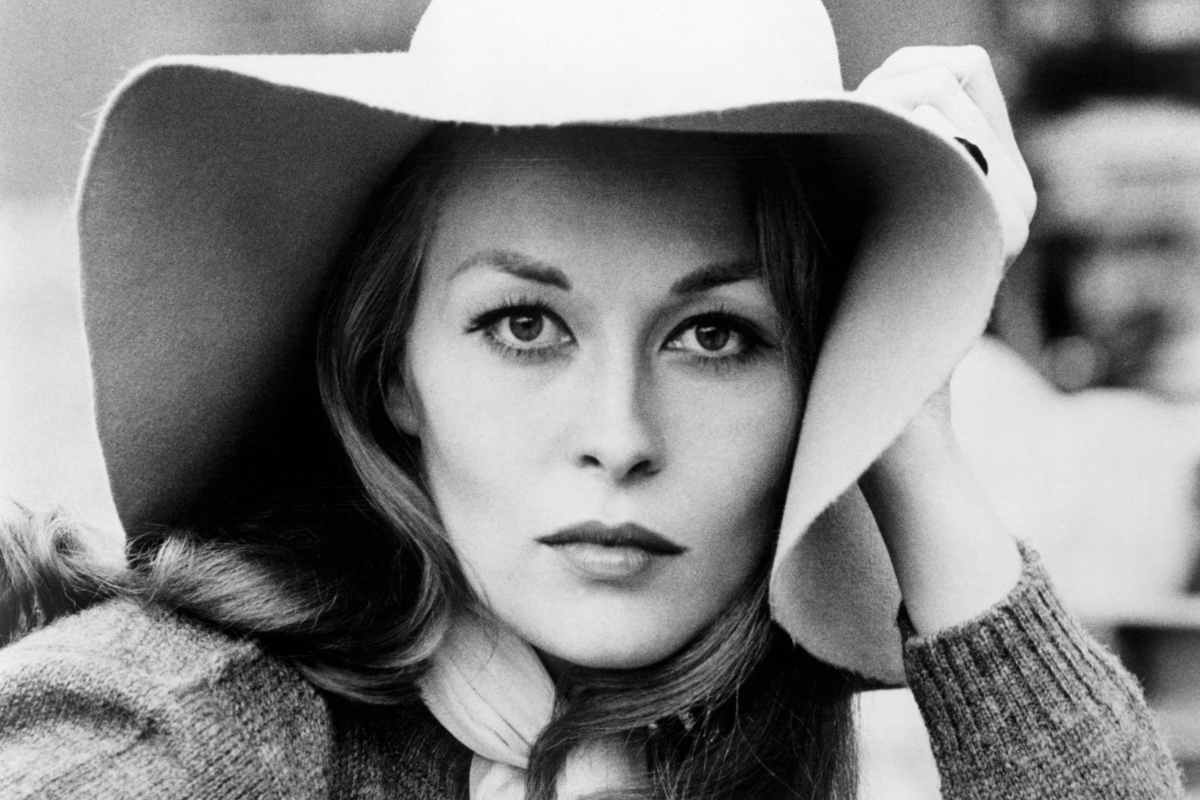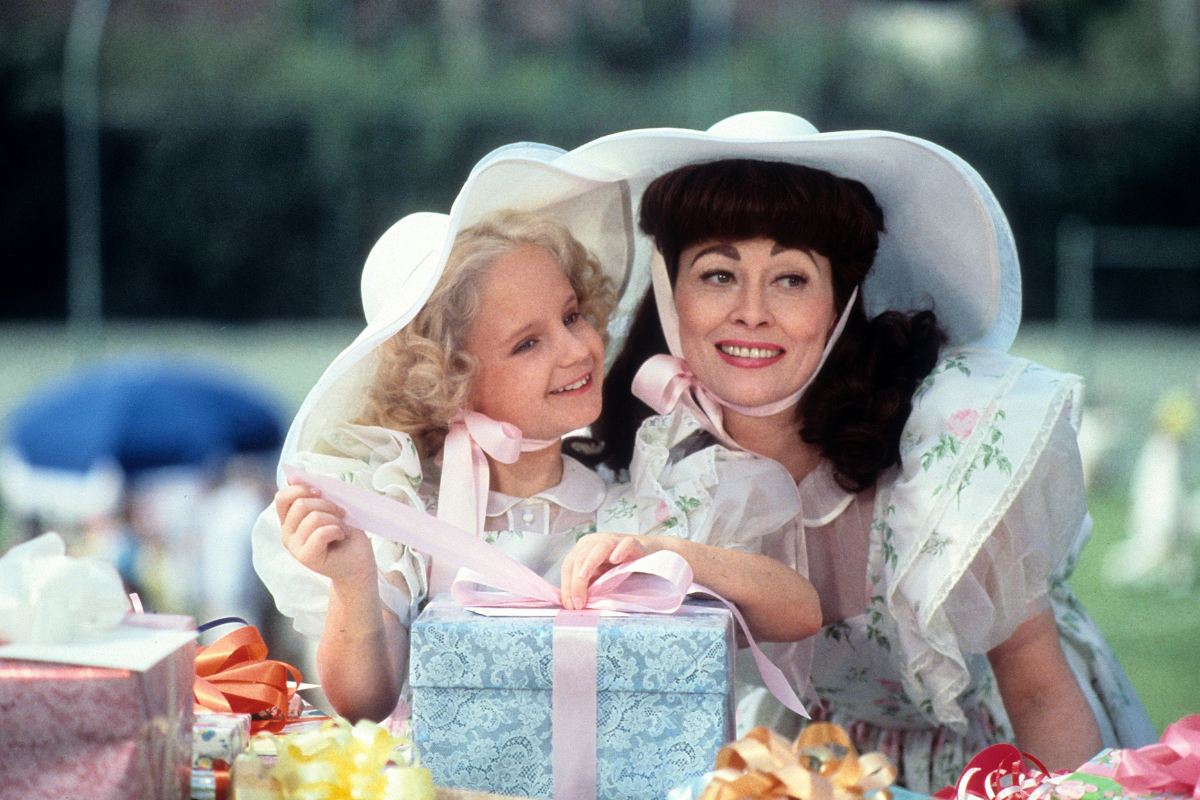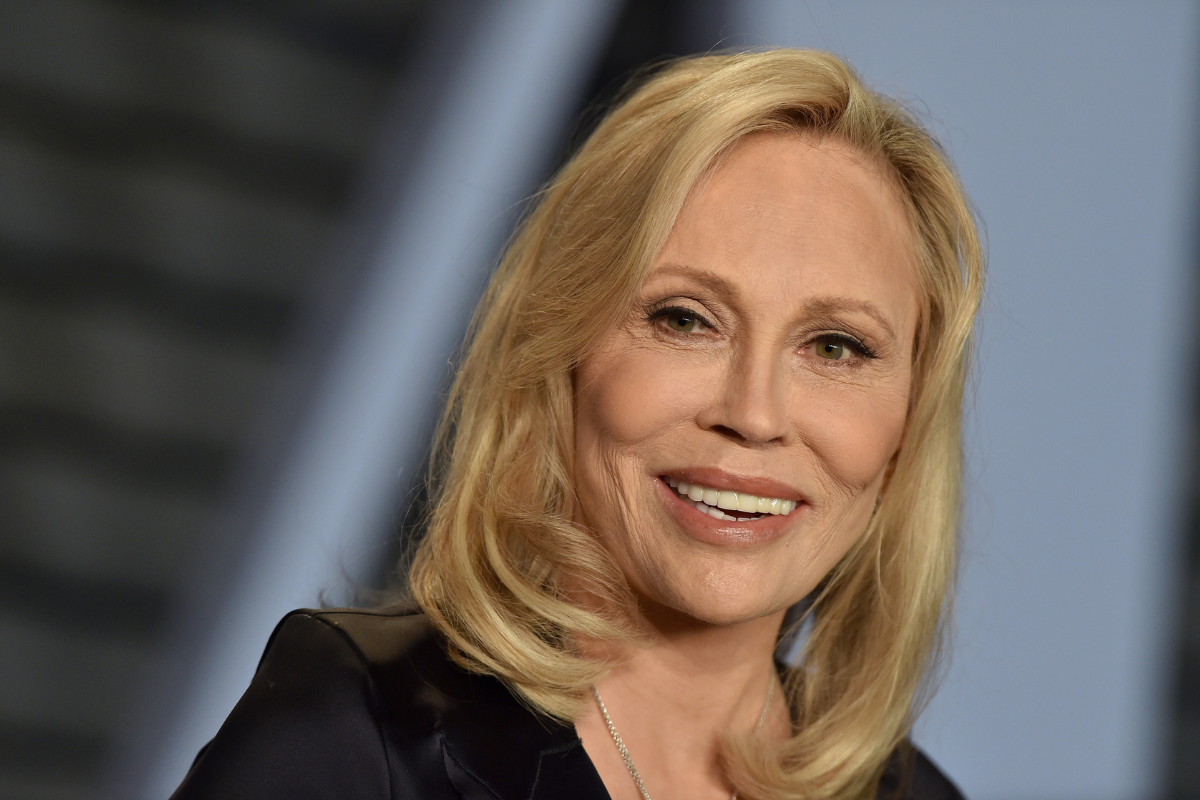When Faye Dunaway took on the role of real-life bank robber Bonnie Parker in the 1967 crime caper Bonnie and Clyde, she reached a level of stardom that most young actresses only dream of.
The 26-year-old had only been starring in movies for a few months, but along with critical acclaim came an Academy Award nomination and top-billing with some of the era's biggest names such as Kirk Douglas, Dustin Hoffman and Steve McQueen.
But just a decade later, the roles were drying up. Rumors of "difficult" and "diva" behavior dogged Dunaway, along with stories of behind-the-scenes feuds with fellow industry heavyweights, such as Bette Davis and director Andrew Lloyd Webber.

Now 83 years old, Dunaway's swift rise to stardom and career downfall are being re-examined in Faye, the HBO documentary that aired at the Cannes Film Festival in May.
"Since the 1950s, successful women have been disproportionately targeted by the media," film scholar J.E Smyth told Newsweek. "When the woman is a Hollywood star, she has a target on her face 24 hours a day."
According to Smyth, Dunaway was "a reincarnation of the old school Hollywood stars of the 1930s and 1940s, who were independent women on and off screen." This persona initially made her a star, but later, played a part in destroying her career.
"She was fierce, she was independent, she was intelligent and loved looking great for herself—not for men," Smyth said. "Perhaps because of this, even more than her mental health struggles, she was doomed to fail in late 20th-century Hollywood."
Filmmaker Vergi Rodriguez agrees, believing that women in the public eye are "scrutinized more harshly for their personal lives, appearance and behavior."
"The entertainment industry has historically been dominated by men,
resulting in institutional bias that marginalizes female performers," she told Newsweek.
Faye was made with Dunaway's participation and features interviews with the former A-lister. The documentary revisits some of the Oscar winner's most controversial moments, including what is perhaps her most famous picture—and the one blamed for ruining her career—Mommie Dearest.
Now a cult classic, Dunaway's manic depiction of Joan Crawford was widely panned. However, the public's perception of Dunaway somehow merged with the over-the-top, frenzied performance, sullying her reputation further.
According to Nina Martin, Associate Professor of Film Studies at Connecticut College and the author of Sexy Thrills: Undressing the Erotic Thriller, Dunaway paid the price for her refusal to play nice and adhere to typical gender norms.
"The mantle of 'female respectability' always weighs heavily on female-identified performers and their punishment is more swift and long-lasting if they step out of line," Martin told Newsweek.
"The industry gives some wiggle room to normative standards of beauty, but they just do not 'fail upwards' in the same way as [male stars]—and just forget about if you are queer or a woman of color."
It may have taken until Mommie Dearest for Dunaway's star power to truly fade, but her erratic behavior on set had already begun to overshadow her screen presence. While filming the 1974 neo-noir Chinatown, Dunaway allegedly hurled a cup of urine in Roman Polanski's face when he wouldn't allow her to take a bathroom break.

Rutanya Alda, who starred in Mommie Dearest with Dunaway claims the actress slapped her on set, while Davis accused Dunaway of showing up late to set without learning her lines, vowing to never work with her again.
Dunaway has always fought back against the rumors, viewing herself as a misunderstood perfectionist. In Faye, she revealed at least part of the reason for her unpredictable behavior—a late-in-life diagnosis of bipolar disorder.
Of course, Dunaway isn't the only female star to have their mental health struggles written off as a personality flaw, rather than an illness.
The 2021 documentary Framing Britney Spears re-examined the press and public's treatment of the singer during her breakdown in 2007. The Amy Winehouse biopic Back to Black, released in May, explored the late pop star's battle with substance abuse, but also the British media's continued harassment of the singer—even as her declining mental and physical health became apparent.
In an interview with Bustle in March, Lindsey Lohan said she left Hollywood for Dubai a decade ago to escape public scrutiny, after her struggle with addiction and legal troubles became tabloid fodder.
Rodriguez, who worked as a backup dancer in the videos for Spears' hits "I'm a Slave 4 U" and "Sometimes," believes people are more aware of mental health issues and the mistreatment of female performers in the industry.

"This incrеasеd awareness has lеd to a cultural shift, whеrе past misjudgments arе bеing reassessed, and the resilience of thеsе women is cеlеbratеd," she said.
However, film producer and screenwriter Karen Torres said the stigma of mental illness remains—particularly for actresses—meaning that any admission of mental health struggles can be a "double-edged sword."
"When you're dealing with many millions [of dollars], you may risk becoming that nasty word: a 'liability'," Torres told Newsweek.
"Hollywood is, and has been, run by men. I think men don't take into account a woman's mental or emotional state most of the time in a work environment, or any environment."
Regardless of her diagnosis, Dunaway's alleged violent or abusive behavior behavior is still unacceptable if true. Nevertheless, that doesn't explain why her career has floundered when there are male actors and filmmakers who have been accused of far worse yet continued to thrive.
Woody Allen and Polanski are still making movies, despite sexual assault allegations, while Robert DeNiro's recent court battle with his former assistant Graham Chase Robinson—who accused the Oscar winner of "years of gender discrimination and harassment"—doesn't appear to have stalled his career, despite his production company being forced to pay out $1.2 million after losing the case.

"While male Hollywood stars are granted some leeway for being abrupt, angry, outspoken or demanding, such behaviors are still viewed as 'unfeminine,'" Christina Scott, Associate Professor of Social Psychology at Whittier College, told Newsweek.
"An aggressive or demanding male actor would fit our expectations of masculinity, but seeing a female actor expressing the same behaviors might directly challenge societal perceptions of femininity."
However, Dunaway is just one of many actresses to face backlash for being "difficult"—regardless of whether the reputation is deserved.
Katherine Heigl has previously said her comments about the 2007 movie Knocked Up derailed her career. The 45-year-old came under fire after describing the rom-com as a "little sexist" for its depiction of women, with Hollywood "shunning" her for years afterward.
Basic Instinct star Sharon Stone said she earned a "difficult" reputation for "expecting to get those things that I felt were correct and appropriate for myself and other women," losing career opportunities as a result, while Jennifer Aniston was slammed by crew members on the 2013 film Life Of Crime for not wanting to eat lunch with them.
Still, Torres believes the industry is improving due to women like Dunaway, who have been candid about their experiences.
"However it's a very different view from the top of the mountain than the bottom," she said. "After years of success, you can afford to show your scars but when you're young, vulnerable and hungry? Not so much."
Uncommon Knowledge
Newsweek is committed to challenging conventional wisdom and finding connections in the search for common ground.
Newsweek is committed to challenging conventional wisdom and finding connections in the search for common ground.
"difficult" - Google News
June 09, 2024 at 04:00PM
https://ift.tt/VNoLc75
Faye Dunaway Film: Experts Weigh In on Hollywood and 'Difficult' Women - Newsweek
"difficult" - Google News
https://ift.tt/2TRVezK
https://ift.tt/hDfgjcO
Bagikan Berita Ini














0 Response to "Faye Dunaway Film: Experts Weigh In on Hollywood and 'Difficult' Women - Newsweek"
Post a Comment